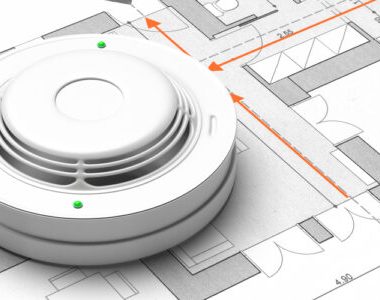How Smart Gardens Can Increase Property Value
Creating a smart garden is a practical way to boost your property’s worth without resorting to costly renovations or property enlargements. Today, smart gardens are becoming increasingly popular. Homeowners are beginning to realize the potential they have for adding value to their properties, and this article will look at how installing a smart garden benefits homeowners.
What is a Smart Garden?
A smart garden is a garden that is designed with smart technology. It includes advanced automation that enables the garden and its features, such as water systems, lighting, and irrigation systems, to be controlled through a mobile app and voice commands.
Benefits of Installing a Smart Garden
Installing a smart garden brings a number of benefits. Below are some of the most important ones:
- Lowers maintenance costs – Smart gardens are easy to maintain and time consuming tasks, such as irrigation, fertilizing, and weeding can easily be managed with the push of a button.
- Increased security – Smart gardens come with motion-activated lighting, which can deter burglars and other intruders.
- Longer growing seasons – Smart gardens can extend the length of the growing season due to the ability to control heat, water, and soil conditions with a single touch.
- More efficient water use – Smart gardens use less water than traditional gardens because of automated water systems.
- Better soil quality –Smart gardens typically have healthier soil because they are connected to natural resources, such as compost, that nourish the soil.
- Improved air quality – Smart gardens are able to filter pollutants, such as dust and pollen, from the air and contribute oxygen to the atmosphere.
How Smart Gardens Can Increase Property Value
Smart gardens have been proven to add significant value to properties. Here are some of the main reasons why:
- Curbside appeal – Smart gardens make properties more attractive, thus increasing its curb appeal and making it more appealing to potential buyers.
- Higher resale value – Smart gardens can significantly increase the selling value of a property due to their enhanced utility.
- More energy-efficient – Smart gardens are able to reduce energy consumption which leads to lower energy bills.
- More enjoyable – As the garden is managed through automated technology, it is more enjoyable and easier to maintain, thus making it an attractive choice for potential buyers.
Costs of Installing a Smart Garden
Of course, installing a smart garden comes with some costs. These include the cost of the hardware and software, as well as the cost of hiring a professional to install and maintain the garden. However, the benefits far outweigh the costs and, in the long run, it will be worth it.
Types of Smart Gardens
There are a number of different types of smart gardens that are available. Here are some of the most popular ones:
- Vegetable gardens – Smart vegetable gardens are ideal for homeowners who wish to reap the benefits of fresh produce without putting in too much effort.
- Aeroponic gardens – Aeroponic gardens are a type of smart garden that uses nutrient-rich water rather than soil. This type of garden eliminates the need for weeding, fertilizing, and soil preparation, and is very efficient.
- Hydroponic gardens – Hydroponic gardens are a type of smart garden that employs the use of a nutrient-rich water solution instead of soil. This type of garden is ideal for those who are limited on space or who want to take advantage of an indoor garden.
- Herb gardens – Herb gardens are great for those who want an easy and efficient way to grow herbs. Smart herb gardens make it easy to control the temperature and humidity, making it easier to grow the perfect herb garden.
How to Get Started
The first step in setting up a smart garden is to determine what type of garden you would like to create. This will depend on the size of the property and the type of plants you are looking to grow. Once you have decided on the type of garden, it is important to select a smart technology and gardening service provider that offers the best options for your individual needs.
Make Your Property More Attractive with a Smart Garden
Smart gardens are becoming increasingly popular because they are a great way to boost a property’s value. By investing in a smart garden, homeowners can benefit from higher resale value, more efficient water use, improved air quality, and more enjoyable outdoor spaces.
Conclusion
In conclusion, installing a smart garden is a practical way to increase property value. Smart gardens are attractive, efficient, and affordable, and they bring a number of benefits to homeowners, such as lower maintenance costs, increased security, longer growing seasons, and improved air quality. Investing in a smart garden is a wise decision and is sure to bring noticeable increases in property value.
What are the benefits of installing a smart garden?
1. Increased efficiency: Automated irrigation systems save time and minimize water wastage, while features such as climate sensors and moisture detection simplify plant care and optimize watering schedules.
2. Improved plant health: Smart gardens allow you to easily monitor environmental factors such as temperature, light, and soil moisture levels, so you can take a much more precise and tailored approach to nurturing your plants.
3. Increased convenience: With a smart garden, leaving your home for extended periods of time need no longer be a source of stress. Its automated watering systems and regularly scheduled maintenance make taking care of your garden effortless and hassle-free.
4. Personalized design: Whether you’re an experienced gardener or a novice, smart garden technology can be tailored to your specific needs. From LED lighting to grow boxes, a variety of accessories and tools are available to help you create a personalized and beautiful outdoor space.
What are the drawbacks of installing a smart garden?
1. Cost: Depending on the features you want in your smart garden, the cost can add up quickly.
2. Dependence on Technology: Smart garden systems, just like any other home automation system, rely on technology to work. If your internet or power goes out, your garden will not work properly.
3. Privacy: If your smart garden is connected to the internet, you must carefully weigh up the potential risks to your privacy before connecting it.
4. Vulnerability to Malware: Smart gardens may be vulnerable to malware, so you must ensure that your system is secure.
5. Maintenance: Smart gardens may require more frequent maintenance than traditional gardens. Additionally, if something breaks in the system, you might need to hire technical help to sort it out.
What are the disadvantages of having a smart garden?
1. Expense: Smart gardens can be quite expensive because of the range of technology and equipment they use.
2. Vulnerability: Smart gardens can be vulnerable to weather or power outages, cyber attacks, or other disruptions.
3. Complexity: Smart gardens may require more setup and maintenance compared to traditional gardens given the technology and complexity involved.
4. Limited Selection: Smart gardens may not have the same selection of plants available as traditional gardens do since these plants must be specially adapted to work with the connected technology.
5. Privacy Concerns: Smart gardens have the potential to collect user data that could pose privacy concerns.

